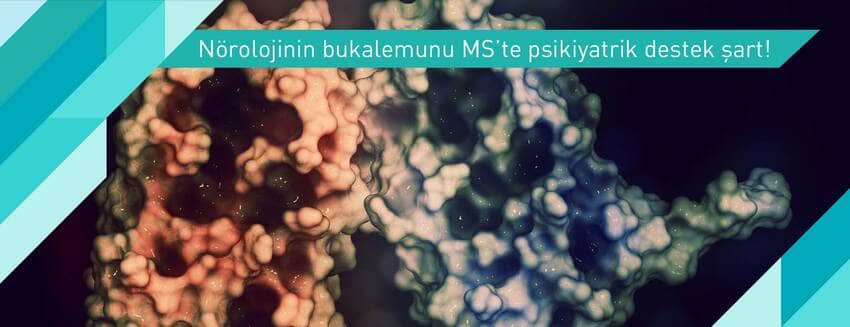
Every year, the last Wednesday of May is commemorated as World MS Day by the International Multiple Sclerosis (MS) Federation and the World Health Organization.
Üsküdar University NPISTANBUL Hospital Neurology Specialist Dr. Celal Şalçini stated that depression is seen in patients diagnosed with MS and said, "We want patients to receive professional psychiatrist support. We also recommend physical therapy and balance exercises for some patients."
The chameleon of neurology Multiple Sclerosis
"MS is called the chameleon of neurology because it can cause all kinds of neurological disorders," said Dr. Celal Şalçini, "Depending on which center of the brain or spinal cord is damaged, it causes that complaint. For example, if it damages the optic nerve, it can cause vision loss, if it damages the balance center, it can cause imbalance or if it affects the movement center, it can cause paralysis."
Involves the brain and spinal cord
Uzm. Dr. Celal Şalçini stated that MS, a disease that can involve the brain or spinal cord, damages an oily tissue called myelin, which surrounds and protects the nerve fibers of neuron cells, the smallest functional unit of the nervous system, and said the following:
"As a result of this damage, the myelin sheath is damaged and leaves a group of neurons dysfunctional. This damage can then regenerate itself, partially regenerate or lose its ability to heal in the later stages of the disease."
Stating that the exact cause of MS is unknown, Dr. Celal Şalçini said that this disease is seen as a result of an overreaction of the immune system and a combination of many factors.
MS is not contagious and hereditary
Stating that although the examination findings of the patient are mostly clarified as a result of brain MRI with medication, cerebrospinal fluid examination and visual numbness tests (evoked potentials) are performed from further examinations, Uzm. Dr. Celal Şalçini said, "MS is not contagious or hereditary. If someone in the family has it, you are a little more susceptible, but know that many MS patients do not have MS in their families."
Not all MS is the same
Stating that there is no treatment to stop MS, Neurology Specialist Dr. Celal Şalçini said, "However, not all MS is the same. There may be a single attack and the person may live a healthy life with very rare minor attacks, or the person may have one or two severe attacks and the problems we call "sequelae" may be permanent. Current treatments reduce the frequency and severity of attacks and make them milder."
